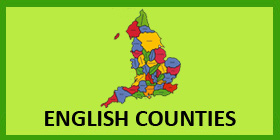




Back to the archives home page

January 2017
IS EDUCATION A SPORT?
I follow quite a lot of sports and I will always head to the page that shows the latest league or individual table so I can see how people are doing in their championship. It is now my belief that the British government are planning to introduce education as a sport at the next Olympics. You may think I have gone off my head but today new style secondary school league tables have been published in England.
Before I explain these new tables, and my thoughts on their usefulness, can I make just one important point. Education is not a sport. Education should seek to help young people learn about their world, gain skills to help them in later life, show them the value of learning and allow them to see the different methods of learning so that, when necessary, they can use the best one to benefit them. If we can also, and here comes one of my favourite phrases, create within them an infectious desire to learn, education will have done its job.
Of course none of these things can be measured with a league table but let's see how the government and their experts actually take these measures before we pull them to pieces.
Until today, secondary school performance was judged mainly by what proportion of pupils got five GCSE grades A-C and that had to include Maths and English. This is, continuing my sports analogy and using my favourite sport of motor racing, a bit like judging a driver by how many times he qualifies in the top ten and taking no notice at all of his race performance, his race-craft, his determination etc. The only difference being that qualifying precedes the race while GCSE's come at the end of 3 full years of learning. The judging of a child's performance in these exams takes no account of an individual's effort; it purely measures him/her against an arbitrary pass mark and his fellow examinees.
But now we have a new method. There are two new measures which are known as Attainment 8 and Progress 8. Not all blame must be laid at the door of the government here as teachers and heads have long complained that to judge a school purely by its results in five GCSE's was unfair, mainly for the reasons I have just outlined. Getting a bright pupil a GCSE takes far less effort than helping a youngster with less academic skills.
Progress 8 aims to improve this by taking into account the level at which a pupil entered secondary school and looking at their results in 8 GCSE's from grade A*-G. These results are then compared against the results of other pupils who entered secondary schools nationally with the same initial attainment levels. Then a figure is calculated across the school year group and that result placed in confidence levels which set out how accurate the government believes the Progress 8 score is. The answer will generally be between -1 and 1 is then placed in five bands:
- well above average
- above average
- average
- below average
- well below average.
I hope you are still with me. I'm not sure I am and I took statistics “A” level so I know how useless this all is. But, I hear you cry or possibly I hear you crying, what about Attainment 8.
Attainment 8 is about the raw results across individual pupils' best eight subjects with a certain amount of weighting. In other words English and Maths are compulsory and worth double points while there is a choice of three subjects from the core academic subjects of the English Baccalaureate and three other subjects from any of the DfE's approved list of qualifications, including vocational courses. These wonderful statistics are only recorded at individual schools. The average score per pupil is calculated and published. The maximum per pupils is 80 and this year the average in all state secondary schools is 49.9.
While it is lovely to know that statisticians will be kept in employment for a few more years, the whole idea of trying to grade schools nationally by how well their pupils perform in a arbitrary exams is ludicrous. The most important factor being that nowhere in these mass of figures is anyone measuring how much or how well a pupil has learnt. If you have read any of my earlier posts on education you will know that my view is an exam will only show what has been remembered from that which has been taught. Information will have been given to these pupils and they will, in many cases, be regurgitating it. Information, as my dear old friend Albert Einstein said, is not knowledge.
We need to be concentrating on giving knowledge to our young people not producing league tables which are, in my view, almost totally meaningless when judging if such knowledge has been acquired and certainly if that desire to always find out more, that curiosity, has been nurtured. Parents need to know how their child is progressing, the rest of the world do not. League tables tell only a small percentage of how good a school is. They should be cast away into Room 101.
![]()

